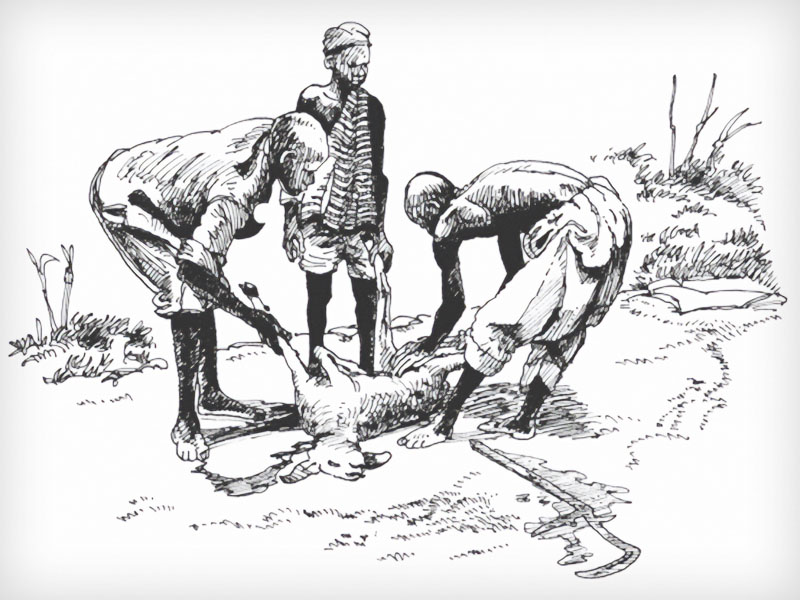Rituals used to call for rain during droughts in Algeria: Examples from the beginning of the 20th Century
Issue 41

By Samir Ait Umghar, Morocco
In Algeria, a call for rain is not referred to as Istisqa’ (the Arabic word for prayers for rain), but as ‘Al Naw’. In Tlemcen, Algeria, it is called ‘Allatif’ to connote that people are asking God to send rain. The drought that threatens crops is referred to as ‘al-Wakfa’ and ‘al-Yabsa’; crops can be saved during Wakfa (the dry season) by appealing for rain, but Yabsa is a permanent drought when rain cannot revive the crops.
Usually, these rituals are only organised when a shortage of rain threatens the crops and pastures. They are not scheduled to happen at the same time each year, but they often happen during the same season (the winter or early spring) when seeds that have not yet sprouted are under threat. If, for example, the drought strikes during autumn when seeds are planted and the seeds cannot grow due to the lack of water, the people do not hold a ritual to ask for rain.
If the drought continues, knowledgeable and devout men and children who study the Holy Qur’an visit saints’ shrines. Children walk with uncovered heads, the knowledgeable are barefoot, and devout men shout as they walk naked. They walk from one shrine to another while reciting verses from the Holy Qur’an, and then they return to their tents. The ritual ends with each participant making a promise to the most important and virtuous saints in the region.
The people also offer a collective sacrifice, most often a bull or a male or female goat. If one person is making the sacrifice, he will usually sacrifice a rooster or chicken.


































































